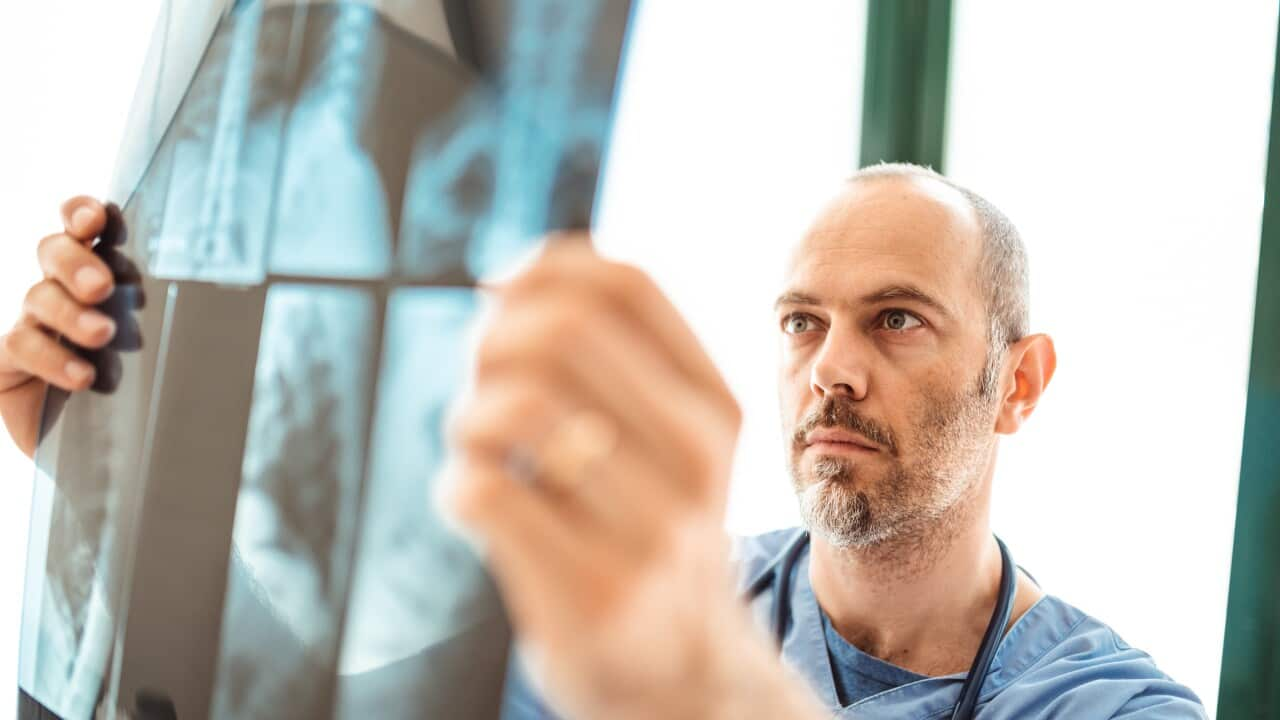Lung cancer is Australia’s fifth most diagnosed cancer, but causes the greatest number of deaths because it is often diagnosed too late.
But this week, a new screening program became available — and there are hopes it will detect cases much earlier for those at the highest risk, including Indigenous Australians and some migrant communities.
"We used to see a large number of people in their middle age to late middle age coming in with problems breathing or coughing up blood or losing weight, and they would have a diagnosis of lung cancer," said Dorothy Keefe, the CEO of Cancer Australia.
"And I remember my first consultant ... he would sit on their beds and he would hold their hands and he would tell them that he was very sorry but there was nothing that could be done."
Keefe was reflecting on her experiences of caring for patients with terminal lung cancer as a junior doctor in the United Kingdom, and she wants medical professionals to avoid as many of those conversations here as possible.
Health Minister Mark Butler said despite it being one of the top five diagnosed forms of cancers, it's one of the deadliest because its often picked up when it's already advanced.
He said that makes them: "very, very hard to treat — and making survivability much lower than some of the other cancers where we're seeing survivability increase quite dramatically."
Anita Dessaix, chair of the Cancer Council's public health committee, said lung cancer mortality is especially a problem in some migrant communities and definitely so for Indigenous Australians, whose rates of diagnosis have been rising.
"There are particular parts of the population that experience currently worser outcomes, and that does include people who are living in rural and remote areas in Australia," Dessaix said. "Those who potentially don't have English as their first language — so culturally and linguistically diverse communities — and also those who are Aboriginal and Torres Strait Islander people."
Who can access the new lung cancer screening program?
The Australian government has funded a national early screening program it hopes will bring down those numbers.
Scans to detect lung issues normally cost hundreds of dollars, but Butler said that they will now cost nothing for patients deemed to be at high risk of lung cancer.
That includes people who are:
- Between 50 and 70 years old
- Show no signs or symptoms of lung cancer
- Have a history of at least 30 pack-years of cigarette smoking, or are still smoking, or have quit in the past 10 years
Butler said the program will entitle high risk patients "to a CT scan every two years, designed to pick up any early evidence of lung cancer and allow them then to be treated hopefully very, very successfully".
He said people in regional communities would also be able to access the program later this year, with trucks equipped with mobile CT scan technology set to be rolled out in these areas.
The international evidence for these types of screening programs is promising.
Butler it suggests up to 70 percent of lung cancers are detected at early stages by low-dose CT scans, and deaths are subsequently reduced by 20 percent.
Accordingly the CEO of the Lung Foundation Australia, Mark Brooke, hopes this program — the first new national cancer screening program in 20 years — will be a game changer.
"We will be one of the first countries in the world to have a national lung cancer screening program that will look across Australia," Brooke said. "And particularly because it's been co-designed with Aboriginal and Torres Strait Islander people, will support those people who have often been forgotten."
For the latest from SBS News, download our app and subscribe to our newsletter.

